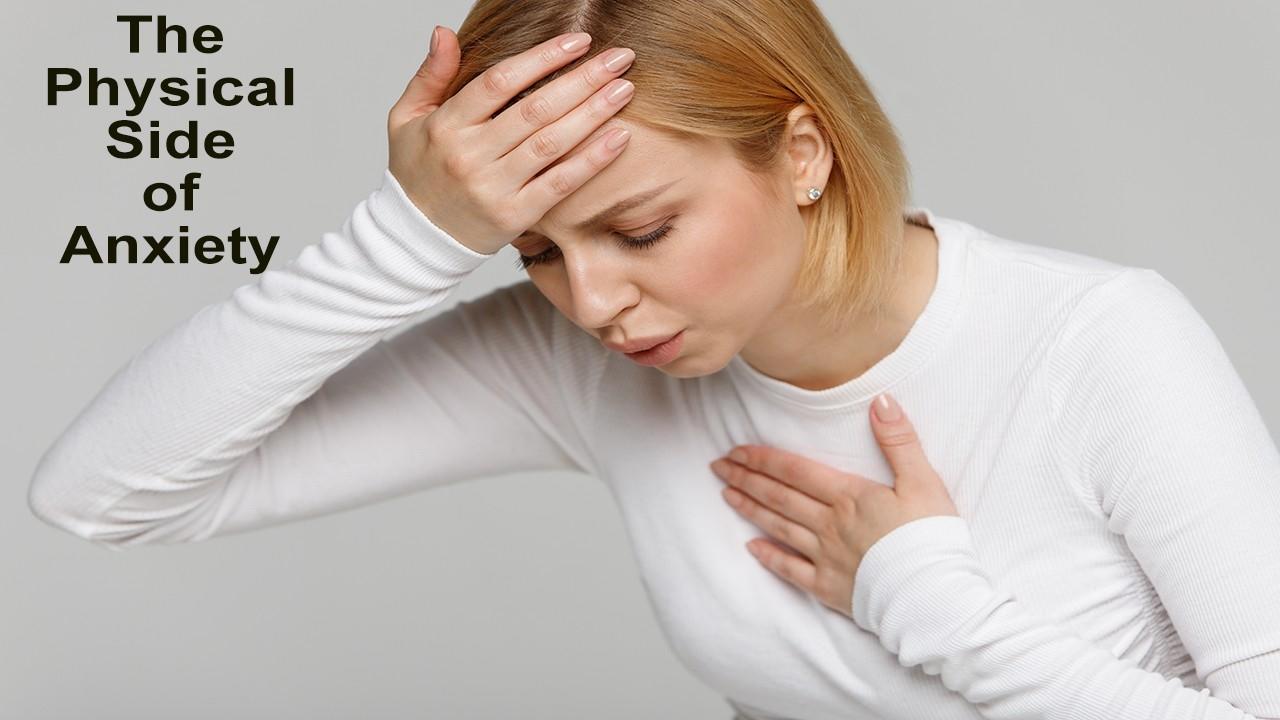The Physical Side of Anxiety

While the cause of anxiety is mainly mental, it manifests in physical form through the changes that our bodies undergo when we start to feel anxious. The bigger our anxiety gets, the more pronounced the physical changes will be.
Often it is those physical impacts that have the biggest negative impact on our health and our quality of life. Making an attempt to reduce both the frequency and severity of anxiety experiences will have an immediate positive effect on the body.
It’s important that you recognize these physical manifestations of anxiety. Think of them as warning signals. When you start to notice them, it’s time to get proactive about getting your anxiety down. Let’s take a look at what you might experience on the physical side of anxiety.
Trouble Sleeping
Often your first sign of anxiety is that you’re having trouble sleeping. It may be harder to fall asleep with random thoughts running through your head. Or you may wake up in the middle of the night with worries.
Excessive Sweating
Sweating and sweaty hands in particular are another sign that you’re getting anxious and stressed out. Listen to your body and work on calming down. Running your hands under slightly cool water can give you immediate relieve, but won’t help reduce your anxiety.
Pounding Heartbeat and Headache
As your anxiety and your stress level go up, you may start to notice a pounding heartbeat. Your body is pumping blood through your system in an effort to get ready for a fight or flight. With the increased adrenalin and higher blood pressure, you may also start to get a headache.
Nausea or Upset Stomach
Nausea and an upset stomach can be another physical symptom of anxiety. I’m sure you’ve experienced this at times when you were nervous about an exam or public speaking engagement. You know your anxiety is going up when you start to feel extremely nauseous.
Fatigue and Weakness
Listen to your body. Being on high alert for long periods of time, as during an anxiety attack, is exhausting. Get extra rest when you can and don’t push yourself too hard.
Insomnia
As the level of anxiety rises, you’ll see some of these physical symptoms increase. You can quickly move from having trouble sleeping to full-blown insomnia. If it lasts for more than a couple of nights, and your attempts to relax and reduce your level of anxiety, it may be time to get professional help so you can rest.
For more information, tools, techniques and tips visitwww.SelfPathfinder.com. Please share this link with anyone you think might find this information helpful.
What's the Difference Between
Anxiety & Panic Attacks?
Download our free printable workbook with writing prompts that will help you learn the difference between worrying & anxiety disorders, how to control your anxiety symptoms & how to speak to loved ones to get the help you need.
Categories
All Categories
Follow Us






